joint support
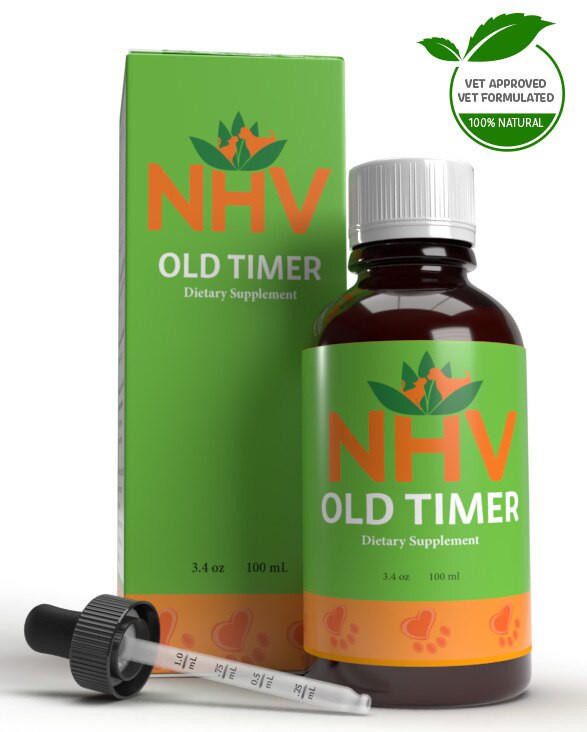
free shipping over $100 (USA & Canada)
1-877-937-4372 the pet expert hotline
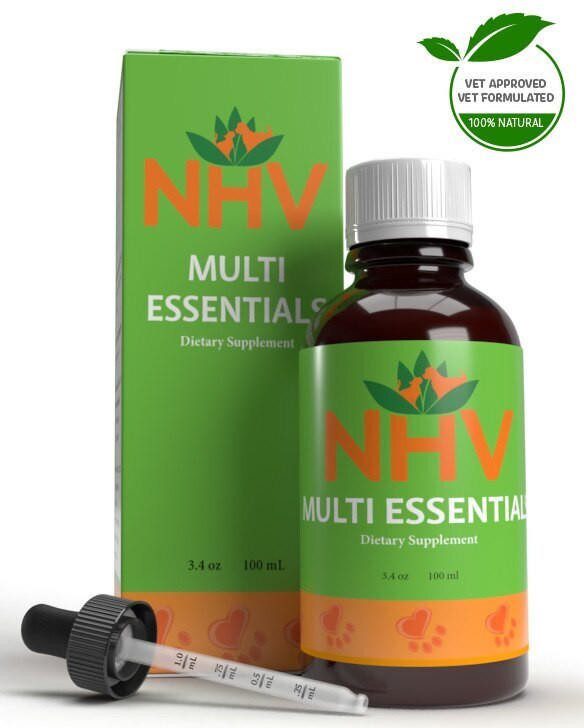
Herbal Digestive Aid, Energy Booster, and Multivitamin for Dogs

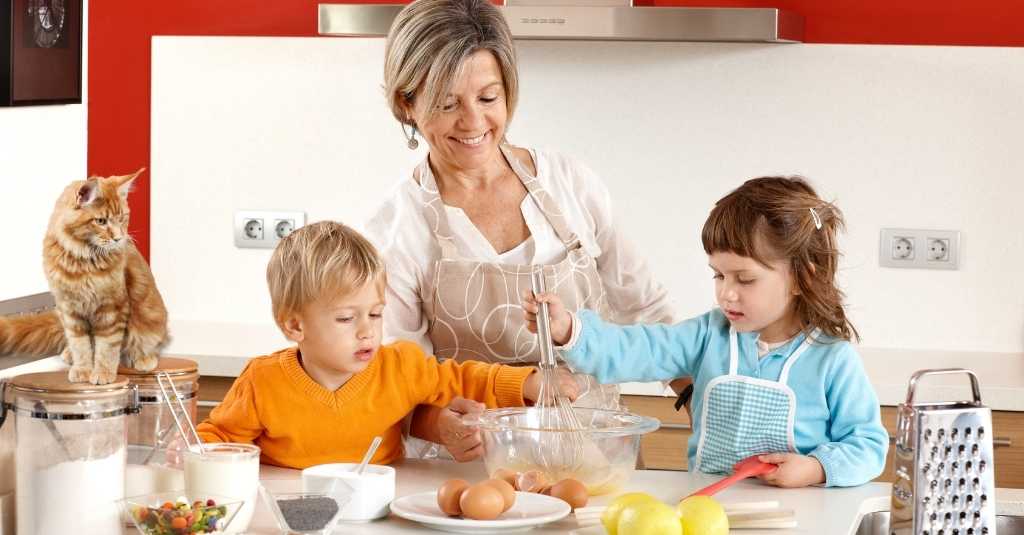
As pets age, their nutritional requirements often change. It is important to adjust your older pet’s diet accordingly to keep them healthy in their senior years. Here are some things to keep in mind when choosing the right diet for your senior pet.
What do we know about most senior pets? In general, their activity is often decreased and they’re slowing down. This means the fat content of their diet should be adjusted to keep them from gaining too much weight. Extra pounds on a senior pet can be very tough on their joints. Increasing fiber will help your senior pet to feel fuller and encourage healthy digestion.
When one thinks about older pets what’s another body change that comes to mind? Many senior pets will begin to lose muscle mass. Increasing your older pet’s protein levels can help to slow this deterioration of the muscles. It is important to consider any underlying health conditions, so ask your vet if an increase in protein is right for your pet.
Antioxidants are compounds that help the body combat the natural oxidation, or aging, of all the cells in the body.
You’ve probably heard of antioxidants and their benefits, but what exactly does this mean? In short, antioxidants help the body combat the natural oxidation, or aging, of all the cells in the body. This includes everything from deteriorating joints, weakening muscles, loss of hearing and vision, and many more aspects of natural aging. Antioxidants can be naturally found in some vitamins such as vitamin C. Some foods which are high in antioxidants include blueberries, cucumber, oranges, and turkey. Supplements such as NHV Turmeric also contain high levels of antioxidants which help to slow cell damage and brain aging.
Antioxidants also help to support the immune system. So, why is this important? Because, as with humans, when aging the immune system can become weaker, making senior pets more susceptible to infections and diseases. Along with antioxidants, NHV Stimmune and Natures Immuno can help to provide support to an aging immune system.
You know that feeling you get after you’ve eaten a big meal? You’re happy and tired and just want to relax. This may be due to tryptophan. Tryptophan is a natural amino acid found in many foods like oats, egg whites, Atlantic cod, and sunflower seeds. Many believe that turkey contains higher levels of tryptophan, however, its levels are similar to those found in other meats. Tryptophan can help to improve your senior pet’s overall mood. It can help them to feel calm and improve their sleep, which is very important for keeping them healthy. NHV Matricalm can also help to keep your senior pet calm and help them rest and sleep better, helping their immune system and helping to slow the aging process.
Don’t forget, in addition to a wholesome and healthy diet, give your pet large daily doses of care and attention. Love and happiness go a long way to keeping your pet young at heart!
Here is a simple recipe you can prepare for your senior pet. Please keep in mind this is a recipe for overall healthy seniors and should be adjusted if your pet has any health conditions. For a customized recipe, Dr. Amanda can help!
Ingredients:
There are a few essential additives that make this diet balanced.
This diet also requires NHV Multi Essentials for additional vitamin and mineral support and NHV Pet Omega 3 for essential fatty acids.
The amounts of each ingredient will vary based on the size of your pet. See the chart below for a basic guide on how much of each ingredient to use for your pet. In order to calculate exact calorie requirements for your pet, you can visit here for cats and here for dogs. Each gram of this diet contains 2 kcal. If you have any difficulty please contact us, we’d be happy to help!
This diet can be prepared fresh daily, or you can prepare it in advance and freeze the portions. If you plan to make larger portions ahead of time, you should use a blender to mix the ingredients to distribute them evenly throughout the meal. Make sure you only add the NHV supplements when you serve the food to your pet. In this diet, we recommend adding NHV Old Timer for joint support and NHV Turmeric for anti-inflammatory and anti-oxidant support
With a healthy, wholesome diet, natural botanical supplements, and lots of love and care, your senior pet can live a happy, fulfilling life.
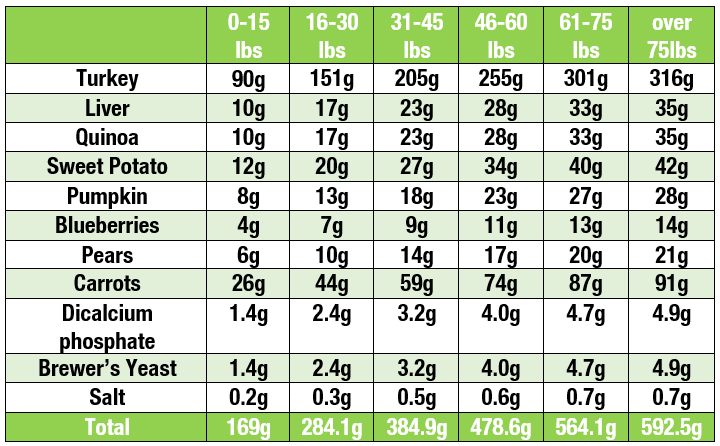
Happy Cooking!
joint support

Natural dog joint support to alleviate arthritis, muscle, and joint discomfort
buy 2 and save $3
3 month supply for a small to medium size pet
NHV’s Old Timer joint support for dogs provides your canine companion with natural support to help alleviate arthritis, muscle, and joint discomfort. Just one bottle contains a 100 day supply for a small-medium sized dog.


NHV’s Old Timer joint support for dogs provides your canine companion with natural support to help alleviate arthritis, muscle, and joint discomfort. Just one bottle contains a 100 day supply for a small-medium sized dog.

Getting older is never easy, especially for dogs. Arthritis is a degenerative disease that progresses with age. It is a debilitating condition that can lead to impaired mobility and even hip dysplasia in dogs.
Finding the right supplements for older dogs can be a challenge, but NHV’s supplements are safe to be given along with any vet prescribed medications. NHV Old Timer can be given to dogs of any age. In fact, we would recommend starting the Old Timer at mid-age even before severe arthritis develops, as a natural and effective proactive care regimen.
We also have a complete Rejuvenation Kit for arthritis and joint discomfort.
Just because your dog is getting older doesn’t mean playtime is over. Read how Snuku bounces back from arthritis with Old Timer dog joint support supplements.
If you have questions, you can ask an NHV expert because we are here to help give guidance and support so your precious pooch can jump for joy and raise the ruff!
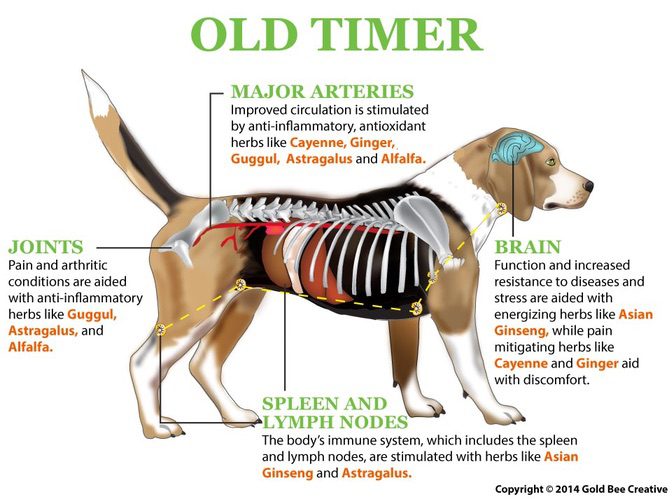
Six potent herbal ingredients will target the entire body to provide dogs support with joints, spleen, lymph nodes, major arteries.
Select your pet's weight to determine the correct dose.
To be taken twice daily. Determine your pet’s weight and then use the easy chart below to determine the correct dose. This is the minimum dosage.
Pet's Weight Dosage
0 - 15 lb = 0.5 ml
16 - 30 lb = 1.0 ml
31 - 45 lb = 1.5 ml
46 - 60 lb = 2.0 ml
61 - 75 lb = 2.5 ml
Over 75 lb = 3.0 ml
How to Administer
Shake well before use. The easiest method is to use the dropper provide and places the drops into your pet’s food or favorite treat. You can also use the dropper and squirt directly into the pet’s mouth.
Some pets can be finicky, if this occurs consider hiding the drops in foods most pet’s love such as fish, chicken or yogurt or a favorite treat. If your pet only eats dry food then soak a few kibbles at feeding time.
For Best Results
Herbal dietary supplements are beneficial to the health and wellbeing of your pet and are safe for long-term use. Every pet responds to natural herbal supplements differently, therefore it is important to be consistent and administer the product daily. Supplements generally take two to four weeks to take effect, however this will vary from one animal to the next.
Product Storage
All NHV Natural Pet Products are pure herbal extracts and contain no artificial additives, preservatives or coloring. Shelf life after opening is 6 months and must be refrigerated after opening.
Cautions and Contraindications
Do not use Old Timer in pregnant or nursing animals. Should be used in moderation in cases of sensitive digestive tract. Speak to your vet before using our products. A second visit is recommended if your pet’s condition does not improve, or deteriorates after continued use of the supplements.
All information provided by NHV Natural Pet Products is for educational purposes only.
Getting older is never easy, especially for dogs. Arthritis is a degenerative disease that progresses with age. It is a debilitating condition that can lead to impaired mobility and even hip dysplasia in dogs.
Finding the right supplements for older dogs can be a challenge, but NHV’s supplements are safe to be given along with any vet prescribed medications. NHV Old Timer can be given to dogs of any age. In fact, we would recommend starting the Old Timer at mid-age even before severe arthritis develops, as a natural and effective proactive care regimen.
We also have a complete Rejuvenation Kit for arthritis and joint discomfort.
Just because your dog is getting older doesn’t mean playtime is over. Read how Snuku bounces back from arthritis with Old Timer dog joint support supplements.
If you have questions, you can ask an NHV expert because we are here to help give guidance and support so your precious pooch can jump for joy and raise the ruff!

Six potent herbal ingredients will target the entire body to provide dogs support with joints, spleen, lymph nodes, major arteries.
Select your pet's weight to determine the correct dose.
To be taken twice daily. Determine your pet’s weight and then use the easy chart below to determine the correct dose. This is the minimum dosage.
Pet's Weight Dosage
0 - 15 lb = 0.5 ml
16 - 30 lb = 1.0 ml
31 - 45 lb = 1.5 ml
46 - 60 lb = 2.0 ml
61 - 75 lb = 2.5 ml
Over 75 lb = 3.0 ml
How to Administer
Shake well before use. The easiest method is to use the dropper provide and places the drops into your pet’s food or favorite treat. You can also use the dropper and squirt directly into the pet’s mouth.
Some pets can be finicky, if this occurs consider hiding the drops in foods most pet’s love such as fish, chicken or yogurt or a favorite treat. If your pet only eats dry food then soak a few kibbles at feeding time.
For Best Results
Herbal dietary supplements are beneficial to the health and wellbeing of your pet and are safe for long-term use. Every pet responds to natural herbal supplements differently, therefore it is important to be consistent and administer the product daily. Supplements generally take two to four weeks to take effect, however this will vary from one animal to the next.
Product Storage
All NHV Natural Pet Products are pure herbal extracts and contain no artificial additives, preservatives or coloring. Shelf life after opening is 6 months and must be refrigerated after opening.
Cautions and Contraindications
Do not use Old Timer in pregnant or nursing animals. Should be used in moderation in cases of sensitive digestive tract. Speak to your vet before using our products. A second visit is recommended if your pet’s condition does not improve, or deteriorates after continued use of the supplements.
All information provided by NHV Natural Pet Products is for educational purposes only.
arthritis support
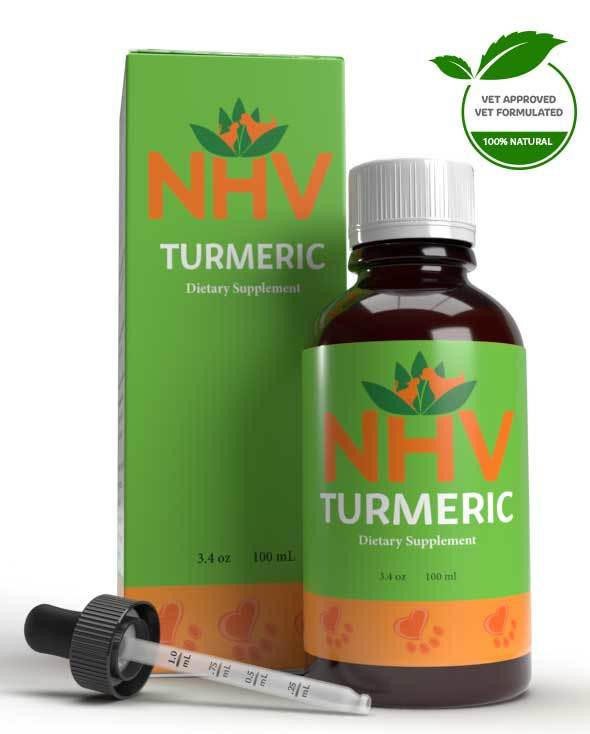
For Arthritis and Cancer Support
buy 2 and save $3
3 month supply for a small to medium size
Dogs love to root around in the dirt for goodies. But did you know one of the best things they could find would be turmeric? Turmeric for Dogs is a natural, antioxidant-rich supplement that supports your pup’s overall wellness.
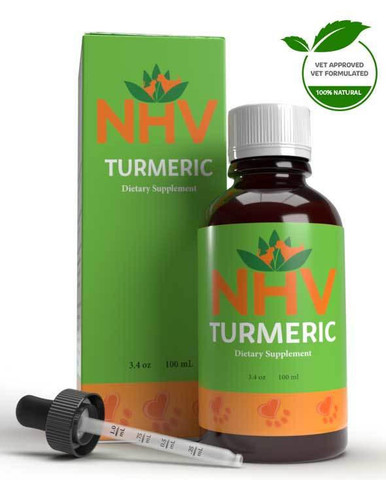
Dogs love to root around in the dirt for goodies. But did you know one of the best things they could find would be turmeric? Turmeric for Dogs is a natural, antioxidant-rich supplement that supports your pup’s overall wellness.
Sadly, your pup won’t find turmeric in their backyards unless you live in the tropics, where this amazing plant grows. However, they can benefit from this golden plant by taking a full-spectrum extract of Turmeric for Dogs.
Is turmeric good for dogs? Yes, most pups can use this safe and gentle herb for a number of health concerns. This is thanks to the organic compounds produced by the plant.
If you’re the pet parent of a sick pup, you might have a challenging journey ahead. Remember that love you feel for your dog will also play a big role, and if you need a little advice, our pet experts are here for you and can be reached by chat.
How does this incredible spice work? Turmeric is rich in antioxidants, which can help your precious pet with stress, pollution, and illness. In the body, Turmeric has the potential to help with both overall.
Pets that are sick have increased oxidation, so the antioxidants they get from food, medication, or supplements can help give them the extra they need.
As pet-parents ourselves, we know you only want the best for your pup. That’s why our extracts are made from human-grade, high quality ingredients. And when you choose NHV Turmeric, you’re choosing decades of holistic pet wellness experience from vets and herbalists who can help support your pet’s wellness journey. Our formula is:
Our turmeric was formulated by a master herbalist and holistic vet. Learn more about Dr. Hillary Cook’s use of turmeric and its benefits for pet health. We are also proud to have been a part of many dog success stories, like with our doggo friend, Captain Morgan.
Captain Morgan’s story: “Our bloodhound has been on turmeric for 2 months now. He has been getting up and down more smoothly and not as stiff in his backend. He loves the taste and we love how it has helped him
You can add daily supplements like Turmeric to top up your dog’s intake of natural, wellness-promoting ingredients. It can be given directly by mouth with the dropper provided, or it can be mixed into food or a favorite treat (this tip is dog-approved)!
All NHV supplements are made with the finest quality organic or ethically harvested herbs. We use non-GMO vegetable glycerin as our base. NHV products are full-spectrum extracts.
Select your pet's weight to determine the correct dose.
To be taken twice daily. Determine your pet’s weight and then use the easy chart below to determine the correct dose. This is the minimum dosage.
Pet's Weight Dosage
0 - 15 lb = 0.5 ml
16 - 30 lb = 1.0 ml
31 - 45 lb = 1.5 ml
46 - 60 lb = 2.0 ml
61 - 75 lb = 2.5 ml
Over 75 lb = 3.0 ml
How to Administer
Shake well before use. The easiest method is to use the dropper provide and places the drops into your pet’s food or favorite treat. You can also use the dropper and squirt directly into the pet’s mouth.
Some pets can be finicky, if this occurs consider hiding the drops in foods most pet’s love such as fish, chicken or yogurt or a favorite treat. If your pet only eats dry food then soak a few kibbles at feeding time.
For Best Results
Herbal dietary supplements are beneficial to the health and wellbeing of your pet and are safe for long-term use. Every pet responds to natural herbal supplements differently, therefore it is important to be consistent and administer the product daily. Supplements generally take two to four weeks to take effect, however this will vary from one animal to the next.
Product Storage
All NHV Natural Pet Products are pure herbal extracts and contain no artificial additives, preservatives or coloring. Shelf life after opening is 6 months and must be refrigerated after opening.
Cautions and Contraindications: Do not use Turmeric in pregnant or nursing animals. Speak to your vet before using our products. A second visit is recommended if your pet’s condition does not improve, or deteriorates after continued use of the supplements.
Sadly, your pup won’t find turmeric in their backyards unless you live in the tropics, where this amazing plant grows. However, they can benefit from this golden plant by taking a full-spectrum extract of Turmeric for Dogs.
Is turmeric good for dogs? Yes, most pups can use this safe and gentle herb for a number of health concerns. This is thanks to the organic compounds produced by the plant.
If you’re the pet parent of a sick pup, you might have a challenging journey ahead. Remember that love you feel for your dog will also play a big role, and if you need a little advice, our pet experts are here for you and can be reached by chat.
How does this incredible spice work? Turmeric is rich in antioxidants, which can help your precious pet with stress, pollution, and illness. In the body, Turmeric has the potential to help with both overall.
Pets that are sick have increased oxidation, so the antioxidants they get from food, medication, or supplements can help give them the extra they need.
As pet-parents ourselves, we know you only want the best for your pup. That’s why our extracts are made from human-grade, high quality ingredients. And when you choose NHV Turmeric, you’re choosing decades of holistic pet wellness experience from vets and herbalists who can help support your pet’s wellness journey. Our formula is:
Our turmeric was formulated by a master herbalist and holistic vet. Learn more about Dr. Hillary Cook’s use of turmeric and its benefits for pet health. We are also proud to have been a part of many dog success stories, like with our doggo friend, Captain Morgan.
Captain Morgan’s story: “Our bloodhound has been on turmeric for 2 months now. He has been getting up and down more smoothly and not as stiff in his backend. He loves the taste and we love how it has helped him
You can add daily supplements like Turmeric to top up your dog’s intake of natural, wellness-promoting ingredients. It can be given directly by mouth with the dropper provided, or it can be mixed into food or a favorite treat (this tip is dog-approved)!
All NHV supplements are made with the finest quality organic or ethically harvested herbs. We use non-GMO vegetable glycerin as our base. NHV products are full-spectrum extracts.
Select your pet's weight to determine the correct dose.
To be taken twice daily. Determine your pet’s weight and then use the easy chart below to determine the correct dose. This is the minimum dosage.
Pet's Weight Dosage
0 - 15 lb = 0.5 ml
16 - 30 lb = 1.0 ml
31 - 45 lb = 1.5 ml
46 - 60 lb = 2.0 ml
61 - 75 lb = 2.5 ml
Over 75 lb = 3.0 ml
How to Administer
Shake well before use. The easiest method is to use the dropper provide and places the drops into your pet’s food or favorite treat. You can also use the dropper and squirt directly into the pet’s mouth.
Some pets can be finicky, if this occurs consider hiding the drops in foods most pet’s love such as fish, chicken or yogurt or a favorite treat. If your pet only eats dry food then soak a few kibbles at feeding time.
For Best Results
Herbal dietary supplements are beneficial to the health and wellbeing of your pet and are safe for long-term use. Every pet responds to natural herbal supplements differently, therefore it is important to be consistent and administer the product daily. Supplements generally take two to four weeks to take effect, however this will vary from one animal to the next.
Product Storage
All NHV Natural Pet Products are pure herbal extracts and contain no artificial additives, preservatives or coloring. Shelf life after opening is 6 months and must be refrigerated after opening.
Cautions and Contraindications: Do not use Turmeric in pregnant or nursing animals. Speak to your vet before using our products. A second visit is recommended if your pet’s condition does not improve, or deteriorates after continued use of the supplements.
overall vitality
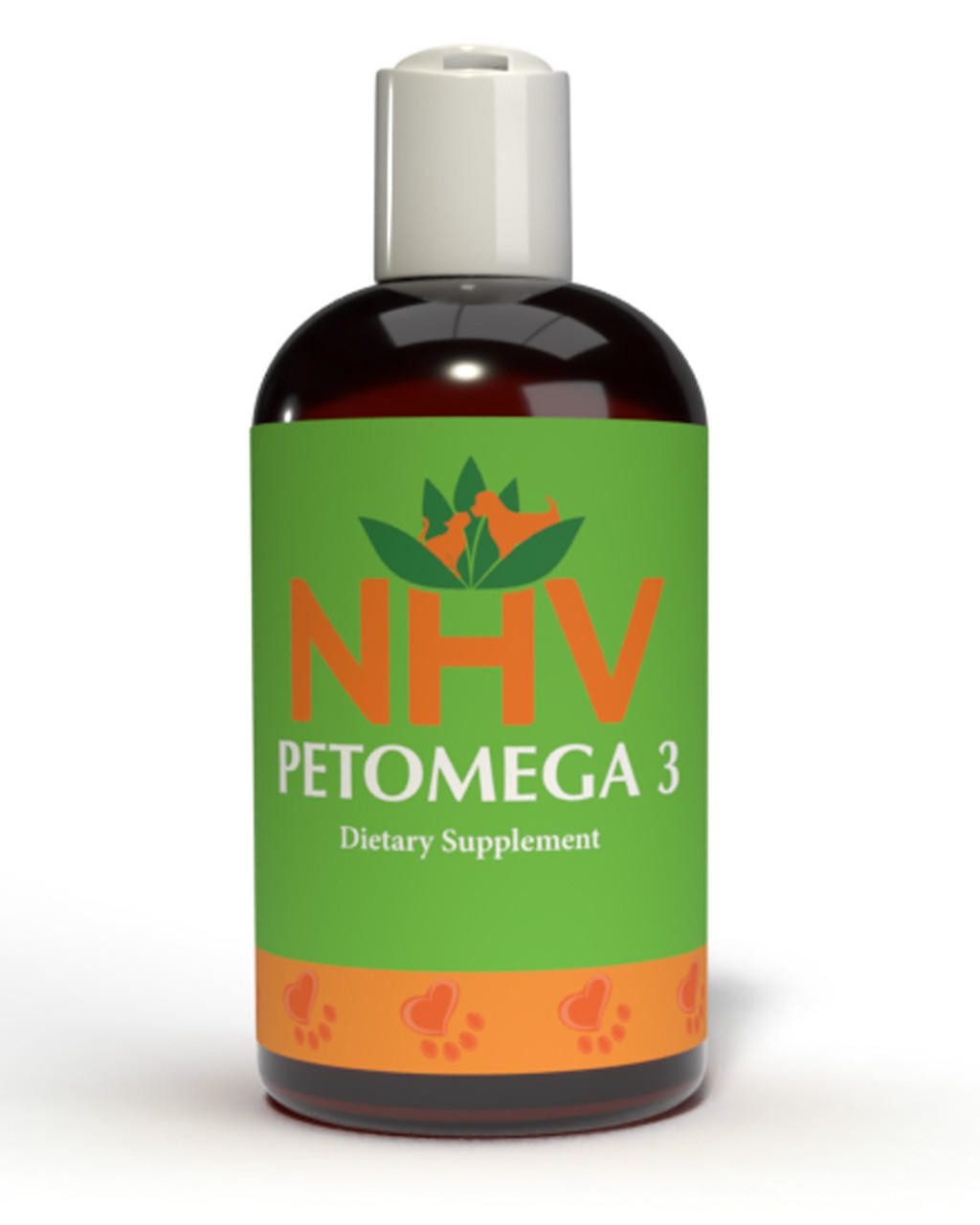
For Overall Health and Well-Being
buy 2 and save $3
An Omega 3 supplement for cats to support their joints, heart, eyes, immune system, and overall organ function.

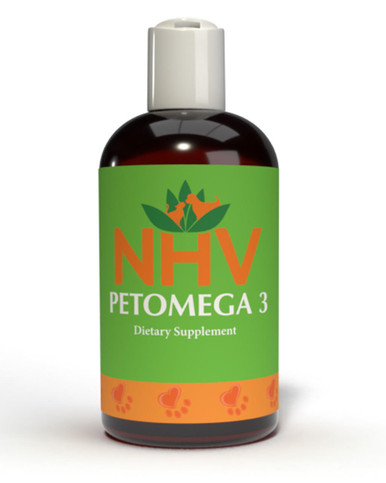
An Omega 3 supplement for cats to support their joints, heart, eyes, immune system, and overall organ function.

Our cat omega 3 supplement is naturally made from the oils of sardines, anchovies, and North Atlantic cod. It’s an excellent source of EPA (Eicosapentaenoic Acid 600mg) and DHA (Docosahexaenoic acid 460mg) essential omega 3 fatty acids. It’s molecularly distilled and cold-pressed to improve the bioavailability
Support your cat with human-grade quality omega 3 fish oil supplements. Many processed pet foods are deficient in this important nutrient. And according to the University of Maryland Medical Center, "It is very important to maintain a balance between omega-3 and omega-6 fatty acids in the diet. A proper balance helps maintain and even improve health."
It’s important for cats to get essential fatty acids through their diet. This omega 3 supplement for cats will help keep them healthy, and even finicky cats actually like to take it.
Benefits of Cat omega 3 supplements:
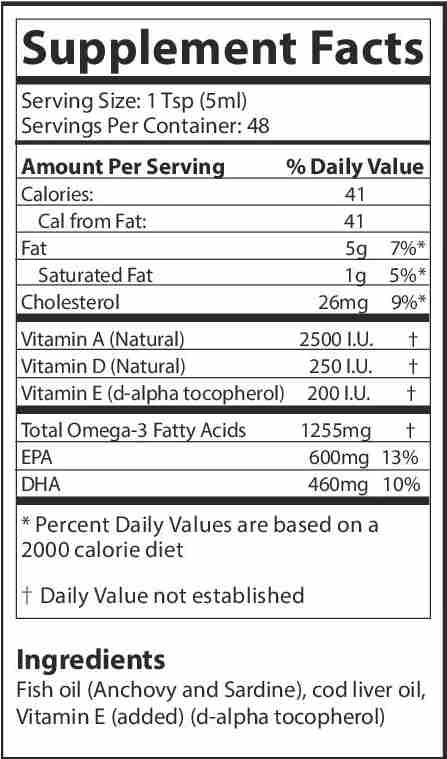
Suggested Dosage: To be taken once per day. Add to food based on weight chart.
Therapeutic Dosage: Double the quantity for maximum period of 4 weeks or follow veterinarian advise.
Pet’s Weight Dosage
0-15 lb = ¼ tsp
15-30 lb = ½ tsp
30-60 lb = 1 tsp
60-90 lb = 1 ½ tsp
How to Administer: Shake well before use. The easiest method is to add the dosage to your pets food. Some pets can be finicky, if this occurs consider hiding the appropriate amount in food most pet’s love such as fish, chicken, yogurt, or a favorite treat. If your pet only eats dry food then soak kibbles at feeding time.
For Best Results
Dietary supplements are beneficial to the health and well-being of your pet and are safe for long-term use. Every pet responds to natural supplements differently, therefore it is important to be consistent and administer the product daily. Supplements generally take two to four weeks to take effect, however this will vary from one animal to the next.
Product Storage
All NHV Natural Pet Products contain no artificial additives, preservatives or coloring. Shelf life after opening is 6 months and must be refrigerated after opening.
Cautions and Contraindications
Avoid During Pregnancy.
Our cat omega 3 supplement is naturally made from the oils of sardines, anchovies, and North Atlantic cod. It’s an excellent source of EPA (Eicosapentaenoic Acid 600mg) and DHA (Docosahexaenoic acid 460mg) essential omega 3 fatty acids. It’s molecularly distilled and cold-pressed to improve the bioavailability
Support your cat with human-grade quality omega 3 fish oil supplements. Many processed pet foods are deficient in this important nutrient. And according to the University of Maryland Medical Center, "It is very important to maintain a balance between omega-3 and omega-6 fatty acids in the diet. A proper balance helps maintain and even improve health."
It’s important for cats to get essential fatty acids through their diet. This omega 3 supplement for cats will help keep them healthy, and even finicky cats actually like to take it.
Benefits of Cat omega 3 supplements:

Suggested Dosage: To be taken once per day. Add to food based on weight chart.
Therapeutic Dosage: Double the quantity for maximum period of 4 weeks or follow veterinarian advise.
Pet’s Weight Dosage
0-15 lb = ¼ tsp
15-30 lb = ½ tsp
30-60 lb = 1 tsp
60-90 lb = 1 ½ tsp
How to Administer: Shake well before use. The easiest method is to add the dosage to your pets food. Some pets can be finicky, if this occurs consider hiding the appropriate amount in food most pet’s love such as fish, chicken, yogurt, or a favorite treat. If your pet only eats dry food then soak kibbles at feeding time.
For Best Results
Dietary supplements are beneficial to the health and well-being of your pet and are safe for long-term use. Every pet responds to natural supplements differently, therefore it is important to be consistent and administer the product daily. Supplements generally take two to four weeks to take effect, however this will vary from one animal to the next.
Product Storage
All NHV Natural Pet Products contain no artificial additives, preservatives or coloring. Shelf life after opening is 6 months and must be refrigerated after opening.
Cautions and Contraindications
Avoid During Pregnancy.
Published: August 10, 2018